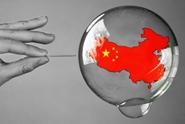Market Data

April 19, 2016
Lots of Talk but No Action at Brussels Steel Meeting
Written by Sandy Williams
Steel producing nations meeting in Brussels on Monday failed to agree on measures to confront the world’s excess steel capacity problem. The meeting, organized by the OECD, brought together ministers and trade officials from 30 countries who only could agree that overcapacity needs to be dealt with swiftly and in a structured manner.
China took the brunt of blame for excess capacity, producing more than half the world’s steel while consuming less than 40 percent of it and dumping the rest in nations around the globe.
“Unless China starts to take timely and concrete actions to reduce its excess production and capacity … the fundamental structural problems in the industry will remain and affected governments – including the United States – will have no alternatives other than trade action to avoid harm to their domestic industries and workers,” U.S. Secretary of Commerce Penny Pritzker and U.S. Trade Representative Michael Froman said in a statement.
China Commerce Ministry spokesperson Shen Danyang said his country has already done more than enough.
“What more do you want us to do?” he told reporters. “”Steel is the food of industry, the food of economic development. At present, the major problem is that countries that need food have a poor appetite so it looks like there’s too much food.”
Although it has cut 90 million tonnes of capacity and plans to reduce it by another 100-150 million tonnes, China’s March steel production hit a record last month. Higher prices, up 42 percent in China, have prompted Chinese steel producers to ramp up production to capture profits. Analysts say that even with the projected capacity reductions, China will still have a capacity of more than 1 billion tonnes, well over what it can consume.
China’s official state news agency, Xinhau, called the blaming China for global problems in the steel industry, “a lame and lazy excuse for protectionism.”
“Blaming other countries is always an easy, sure-fire way for politicians to whip up a storm over domestic economic woes, but finger-pointing and protectionism are counterproductive,” wrote Xinhau in an editorial.
The UK steel industry is currently in crisis as Tata Steel pulls out of the British Isles citing global oversupply of steel as one of the factors contributing to the company’s deteriorating financial position.
UK business secretary Sajid Javid attended the Brussels meeting and said that China has recognized the problem of overcapacity in their country and is committed to do something about it. Javid has been criticized for not taking a proactive stance to protect the British steel industry.
UK Steel director Gareth Stace urged governments to “take rapid and decisive action” or “risk seeing their steel sectors wither on the vine and die,”
Said Stace, “What we needed to see at today’s meeting was an agreement by national governments to take short-term, detailed actions to help address the steel sector crisis. However, having agreed what the problems are we appear to be no closer to finding international action to put in place solutions.”
State subsidized steel mills in China have been the target of a slew of AD/CVD actions.
EU Trade commissioner Cecelia Malmstrom maintained that failing plants should not be kept running through government subsidies and state controlled firms should be subject to the same rules as the private sectors.
In a “can’t beat them, then join them” stance, EU industry commissioner Elzbieta Bienkowska, reportedly told German newspaper, Frankfurter Allegemein Zeitung, that the EU should consider allowing members to subsidize their own steel industries.
“We have to discuss whether we can’t be more flexible in our judgment of state aid,” said Bienkowska.
Taiwan asked to leave OECD meeting
In some separate political wrangling, Taiwan said its delegation was ejected from an OECD steel committee meeting after China complained the standing of the delegation was not “high-level.” Belgian Deputy Prime Minister Kris Peeters complied with the request by China and asked the delegation to leave.
Taiwan was an observer, not a member of the OECD, and was participating as a dialogue partner in the Belgium meetings to discuss steel overcapacity.
The ejection was seen as a political bullying by China which continues to dispute Taiwan’s sovereignty.







